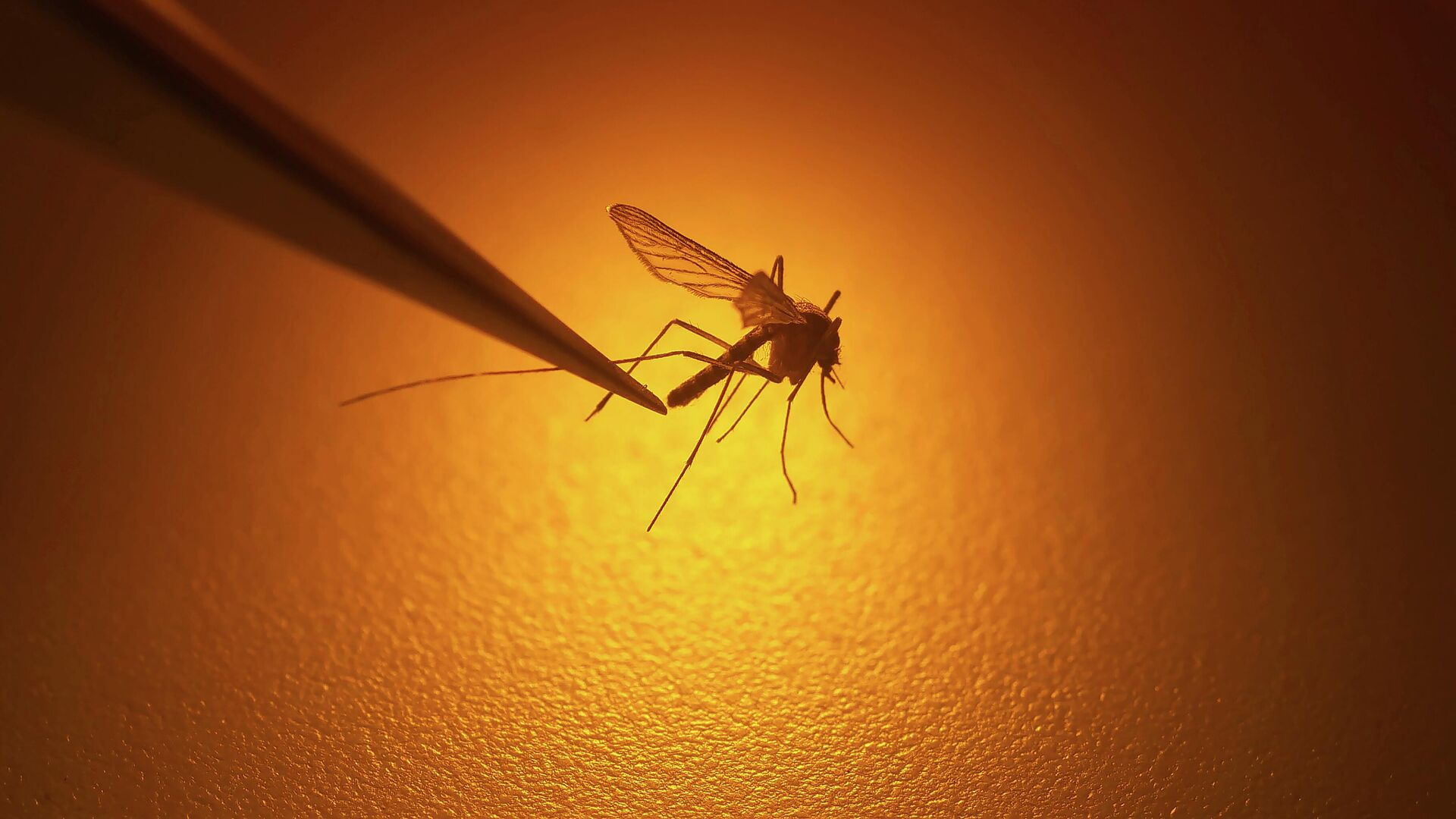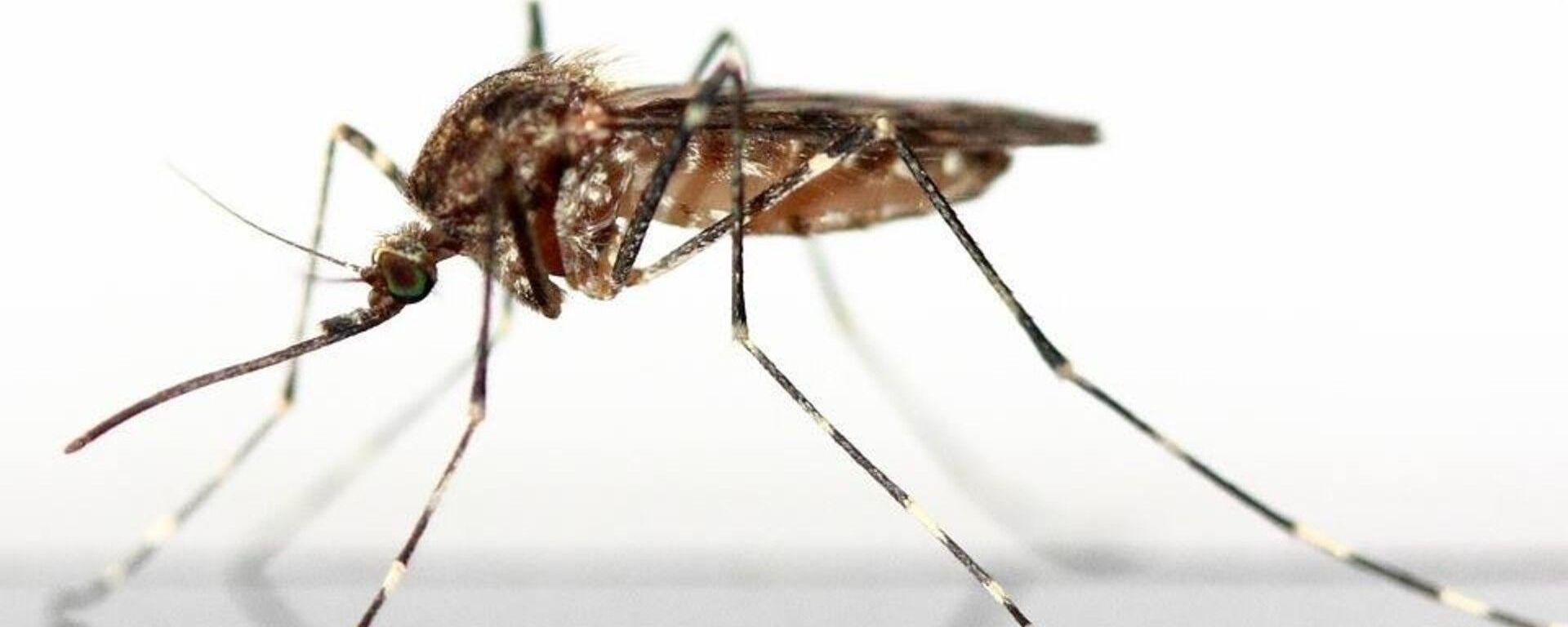Scientists Reveal How Mosquitoes Are Able to Smell Humans Even Without Antennae

© AP Photo / Rick Bowmer
Subscribe
A mosquito always seems to find its way back to humans, regardless of whether one chooses to use repellent, long sleeves, or citronella coils. Researchers now claim to have discovered the mechanism underlying the insect's capacity to focus on humans.
Mosquitoes use the body odor, heat, and carbon dioxide that humans emit, varying from person to person, to find their next meal. The study, which was published in the scientific journal Cell, reveals that mosquitoes may perceive odors via a variety of distinct pathways, in contrast to animals, which have a single set of neurons that detect each sort of odor.
Female mosquitoes use the variety of odors that people and other animals produce to find the blood that will feed their eggs. The olfactory neurons in the insects' antennae, which are where they take up scents, detect and send scent information to the brain.
Groups of human-odor receptors on the olfactory neurons in the antennae of female mosquitoes (Aedes aegypti) were rendered inactive by the study's lead author Meg Younger and her colleagues at Boston University in Massachusetts using the gene editing tool CRISPR.
"We found that there’s a real difference in the way mosquitoes encode the odors that they encounter compared to what we’ve learned from other animals,” Younger is quoted as saying in the Guardian report on the findings.
According to Younger, the scientists believed that mosquitoes would adhere to the core tenet of olfaction, which states that each neuron expresses only one type of receptor.
“Instead, what we’ve seen is that different receptors can respond to different odors in the same neuron," she added.
This reportedly suggests that mosquitoes can still detect human odors after losing one or more receptors. The researchers asserted that this backup system may have developed as a survival mechanism.
"The mosquito Aedes aegypti is specialized to bite humans, and it is believed that they evolved to do that because humans are always close to fresh water and mosquitoes lay their eggs in fresh water. We are basically the perfect meal, so the drive to find humans is extremely strong," Younger explained
In the end, the researchers argued, knowing how the mosquito brain perceives human odor could be used to influence biting behavior and stop the spread of diseases like malaria, dengue fever, and yellow fever that are transmitted by those insects.
"One major strategy for controlling mosquitoes is to attract them to traps to remove them from the biting population. If we could use this knowledge to understand how human odor is represented in the mosquito antennae and brain, we could develop blends that are more attractive to mosquitoes than we are. We could also develop repellants that target those receptors and neurons that detect human odor," Younger concluded.
Notably, Christopher Potter at Johns Hopkins School of Medicine in Maryland recently found a similar phenomenon in fruit flies, or Drosophila melanogaster.
“If one of these types of olfactory receptors is mutated or no longer functioning, there’s this backup system," Potter is quoted as saying in the New Scientist report. “It’s changing the dogma of what we thought we knew about the olfactory system.”

